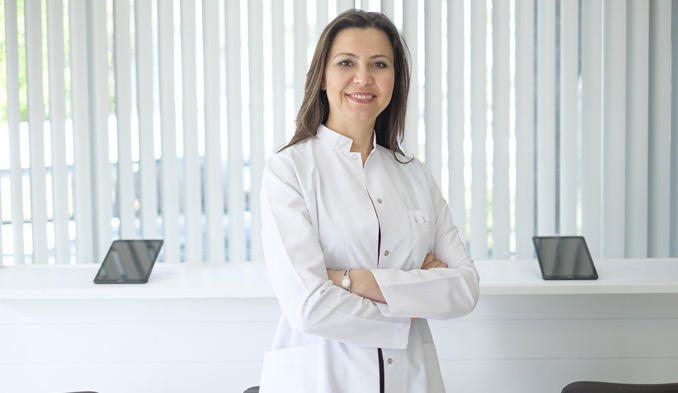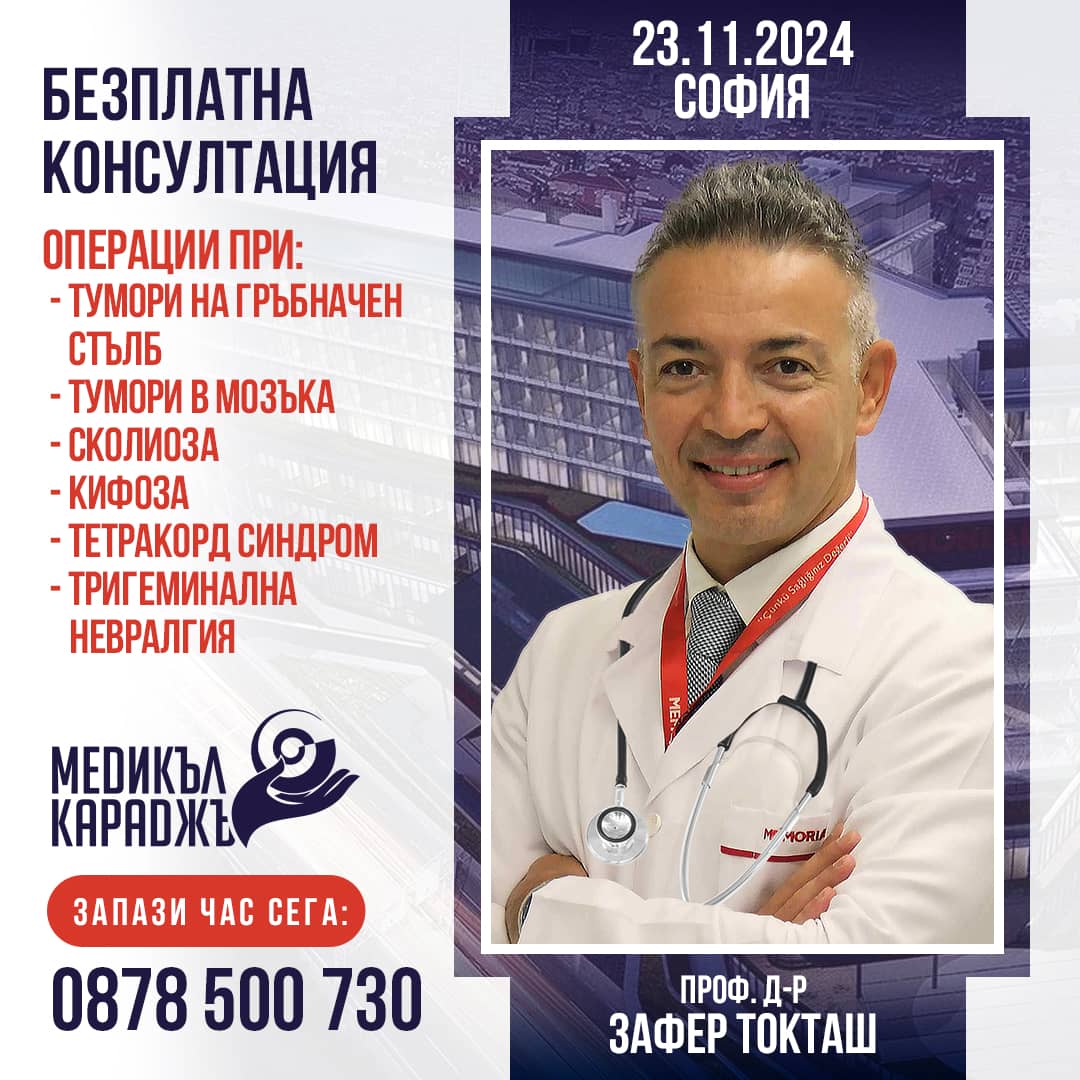Prof. Dr. Banu Ajar from the Batigoz Specialized Ophthalmology Hospital in Turkey will consult patients in Sofia free of charge on October 20 and 21. Assoc. Adjar is a specialist with many years of experience and excellent results in refractive surgery with the latest generation of laser equipment in the treatment of myopia, hyperopia and astigmatism. But she is also highly sought after by patients for the treatment of retinal diseases, strabismus, and cataracts. Assoc. Adjar will be visiting Bulgaria at the invitation of the Health Information Center "Medical Karaj", as part of their initiative to provide Bulgarian patients with access to the latest advances in medicine by partnering with some of the best medical institutions and specialists from around the world.
Laser treatment and ReLEx SMILE
Laser vision correction has been applied for many years and the technology in this field is becoming more and more secure and sophisticated. Therefore, more and more people are taking the opportunity to throw away their glasses and contact lenses after a procedure lasting 4-5 minutes. However, it is not suitable for everyone and only an experienced practitioner should decide whether and what laser treatment is appropriate for a particular patient. The success of the treatment depends largely on the experience of the doctor.
The most commonly used method is I-Lasik, but in some cases the application of Lasek or PRK is more appropriate. Each eye has unique characteristics, so laser treatment should be planned accordingly for better results.
ReLEx SMILE is a 3rd generation laser vision correction technology. It can treat myopia up to -10 and astigmatism up to -5. Apart from the fact that it can be used in patients with high diopters, its main advantage over other laser devices lies in the fact that it is also applicable to thin corneas, which is usually a prerequisite for performing a laser procedure.
Corneal diseases and keratoconus
The cornea is the outer layer of the eye. It helps protect the eye and refract light. When the cornea becomes thin or distorted, vision is impaired. This cone-shaped distortion is called keratoconus and usually affects young people. In the early stages, glasses or contacts can help improve vision but not stop the progression of the disease. In some patients, it is possible to have corneal rings fitted, the purpose of which is to correct the distortion as far as possible. In a more advanced stage, a cross-linking procedure can be performed, in which the corneal collagen tissue is healed with the application of vitamin B2 (riboflavin) under UVA light for 5 minutes. In about 20% of keratoconus patients, the above methods do not stop the progression of the disease and corneal transplantation may be necessary.
Corneal transplantation (keratoplasty)
In addition to keratoconus, corneal transplantation is sometimes required in patients who have suffered corneal trauma, chemical damage, infection or congenital dystrophy. In the surgery, called keratoplasty, 6-9 mm of the surface layer is replaced with healthy corneal tissue from a donor. With the development of technology, the procedure can be performed using laser technology
Treatment of strabismus (strabismus)
It represents a lack of coordination in the movements of the two eyeballs, as their visual axes are not parallel to each other. This condition usually occurs at an early age and subsequently causes amblyopia (lazy eye). It can be treated with surgical or non-surgical methods.
Cataracts in adults and... babies
A cataract, also called a "perineum," is a blurring of the lens of the eye and causes significant vision loss. In 90% of cases this condition is seen in the elderly, but in rare cases congenital cataracts can also be found in infants. A history of rubella or the intake of certain antiviral drugs during pregnancy may contribute to this.
Surgical treatment is the only possible method to remove the clouded lens.
All of the following methods and all of the state-of-the-art ophthalmic practices are applied at Batigoz Hospitals, which specialize in eye health care. The success of the chain's clinics is evidenced by the fact that since its foundation in 2004, it has grown to 6 hospitals and 4 medical centers located in 5 different countries - Turkey, Romania, Iraq, the Netherlands and Belgium.
Consultations with Dr. Banu Azhar in Sofia are suitable for patients with eye problems who are looking for a second medical opinion, as well as for those who are interested in treatment abroad. Those wishing to take advantage of the free consultations should make an appointment in advance at the following numbers "Medical Karaj"0879 977 401 or 0879 977 402, and to provide on the spot any medical documents they have to date, possibly translated into English.







